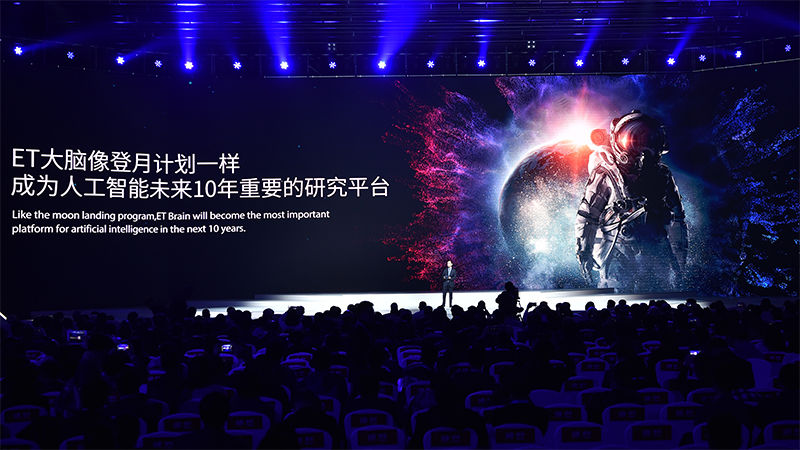David Cyranoski 15 JANUARY 2018
The country’s ambition to become the global leader in artificial intelligence will require a large, highly skilled workforce.
A mountainous district in western Beijing known for its temples and mushroom production is tipped to become China’s hub for industries based on artificial intelligence (AI). Last week, the Chinese government announced that it will spend 13.8 billion yuan (US$2.1 billion) on an AI industrial park — the first major investment in its plan to become a world leader in the field by 2030.
But scientists there wonder whether the proposed 55-hectare AI park, in the Mentougou district 30 kilometres away from the city centre, will be able to attract enough researchers. The government wants it to house 400 companies that will make an estimated 50 billion yuan a year developing products and services in cloud computing, big data, biorecognition and deep learning. “I don’t see any top talent willing to go to work and live there,” says a scientist working at an AI start-up in Beijing, who asked to remain anonymous because the government is sensitive to criticism.
Sourcing accomplished AI researchers is a problem that’s confronting AI-related companies and research centres around the world. “The future [of AI] is going to be a battle for data and for talent,” says David Wipf, lead researcher at Microsoft Research in Beijing.
Talent grab
Chinese AI companies are progressing at a dizzying pace. At least five companies developing facial recognition technologies — including SenseTime and Face++, both based in Beijing — pulled in more than $1 billion from investors in 2017. But many AI companies there are struggling to hire researchers. In 2016, the information-technology ministry estimated the country needed an additional 5 million AI workers to meet the industry’s needs.
The global pool of experienced AI talent is small. Chinese businesses also have to compete with the aggressive hiring techniques of multinational players such as Google, which some fear are draining universities of researchers by tempting them with high salaries. “It’s a talent war — whoever makes the best offer wins,” says Nick Zhang, president of the Wuzhen Institute, an AI think tank in Wuzhen. He knows of experienced people getting salary offers of $1 million or more to work at the AI research centres of Chinese social-media giant Tencent or the web-services firm Baidu. “This was unimaginable five years ago,” he says.
Accomplished industry veterans might be scarce in China, but it is rich in bright, hard-working computer-science graduates who have expertise in machine learning and other AI-related fields. Peking University established the country’s first undergraduate course in AI in 2004, and since then 30 universities have introduced similar courses.
But universities are struggling to meet industry’s demands, especially because many of the best graduates leave the country. Young Chinese researchers populate AI laboratories from the United States to Israel. At a December 2017 workshop held at New York University (NYU) Shanghai, called Future Leaders of AI Retreat, almost all of the attendees were Chinese researchers working at US universities or industrial laboratories. Zhang Zheng, an AI researcher at NYU Shanghai who organized the retreat, says that he often writes letters of recommendation for Chinese students to study in the United States. “The hope is for them to return later on in their career trajectories,” he says.
There’s also stiff competition for AI researchers within China. Most of the country’s leading AI scientists go to work in industry rather than in academia, says Zhang Zheng. Wipf says that Microsoft set up in Beijing partly to hire the best graduates coming out of nearby Peking and Tsinghua universities, the nation’s premier higher-education institutions.
Last month, Google also established its own AI research centre in Beijing to attract these prodigies. Zhang Zheng says it’s good for the Chinese AI community that international companies are setting up there, because US companies such as Google and Facebook do more fundamental research compared with local tech giants, he says. “China is lacking top talent, and [working at China-based foreign research hubs] is a way to train them.”
AI training
The Chinese government realizes that it needs to train and retain more AI graduates if it is to become the world leader in the field by 2030. Its AI roadmap, released by the Communist Party’s powerful State Council last July, calls for increased education in AI at primary and middle schools.
Online AI training courses are also becoming popular. “The enthusiasm for learning AI is very high,” says Zhang Jiang, who teaches AI at Beijing Normal University’s School of Systems Science.
The country still trails behind the United States in most AI indicators, such as private investment and number of patents, according to figures from the Wuzhen Institute. Nick Zhang says that gap is closing fast, especially in applications such as computer vision.
There’s greater uncertainty about whether China will be able to achieve pioneering breakthroughs in the next decade. “There is still a very big gap before China can lead the competition, because China lacks fundamental innovations,” says Zhang Jiang. “China is still a good learner, but not a good innovator.”



